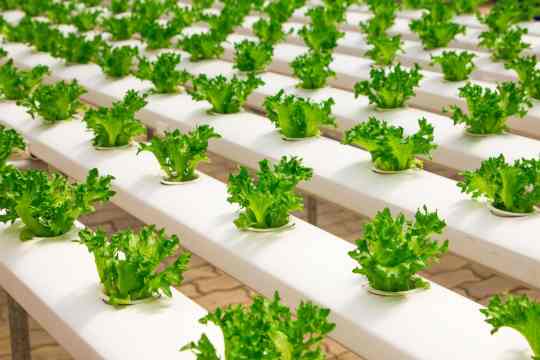Getting into the farming business is one of the most enjoyable and fulfilling things you could ever do. However, it’s not something you can do overnight, and you need to invest a ton of time, money and effort into starting and developing your small farm.
You need to follow the latest trends, get informed and learn as much as you can about this farm business, so if you too are considering making a career in this field, here are a few things you’ll need to know.
5 Things You Need to Know Before Starting Small Farm Business

1# Learn the Basics
Unless you’re already a professional farmer, you’re going to need to spend some time learning a few basic things about this business.
It may not be the most enjoyable process in the world, but it’s still something you need to do as soon as possible. Don’t be afraid to fail, though, because this is a vital part of farming and something that will help you learn more about it.
Talking to someone with experience might be a great strategy, and these are the people who can teach you things that are practical, useful and actually applicable in real life.
So, find someone to be your mentor and volunteer to help them on their farm, and you’ll thus get both a theoretical and practical knowledge you can later use.
Alternatively, you can sign up for a training program and learn the basics you can then try out in real life on your own farm.
2# Focus on the Design
Not all the farms are the same, and if you’re planning to accomplish your goals in this business, you need the best farm you can get. This often means designing it by yourself instead of just buying a farm that’s already there – doing everything on your own might be more tiring and time-consuming, but it’s much better in the long run.
The design on your farm depends on what you’d like to with it – again, not all farms are the same, and you should define what kind of farm you’d like to have.
Are you into growing vegetables, keeping livestock, growing hay – maybe all of these things, or maybe something completely different?
Once you answer that question, you’ll be able to design and equip your own farm and start doing some real work at last!
3# Create a Business Plan
This is another crucial part of every business, and if you don’t invest enough time and patience into creating the most detailed business plan you can, the chances are you’re not going to be successful at all.
Business plans include a number of things – from researching the market and anticipating the demand to working on your finances and finding your spot in the business – which means it has to be perfect if you want to make a living in farming.
Business plans also include management structure, equipment purchases, and other vital features of a successful farm. And since some of your equipment could be rather valuable and pricey, you need to find a way to purchase it on time and make sure it’s ready to be used.
These include all your tractors, cultivators, sorters and round balers, but also those useful contemporary diesel fuel tanks that will make sure all your heavy machinery always has enough fuel to run all day long and you’re not left stranded in the middle of your work.
4# Work on Your Finances
Your business plan should include a detailed financial strategy for your new business, but you’ll still have to find a way to finance all your expensive equipment.
Loans and grants are the most common ideas perspective farmers are looking into, and you might want to do that as well. These are just some of the ways to finance your new business, and if you manage to find a great offer, you’ll be able to take care of your finances rather easily.
Grants and loans are often offered by banks and government agencies, so you need to do take a step back from making plans and invest some time into exploring all of these options.
With so many choices out there, you have to be careful which one you’ll go for because making financial mistakes right from the beginning surely isn’t something you want to be doing.
5# Licenses and Permits
Finally, after taking care of your finances, your business plan and your training, you need to get your licenses and permits, and you’ll be ready to finally start your farming business. These requirements vary from one part of the world to the next – sometimes they’re even different in different parts of a single country – so you have to be very careful and not make any mistakes.
Again, talking to someone who’s already in this business could really go a long way and help you get all your necessary licenses and permits. These people have already gone through the process and could help you do everything that needs to be done.
Some of the things you’ll have to do include registering a business name, getting an identification number, and purchasing a business license, so start doing these things as soon as possible because you can never know how much time you’ll waste on them.
Getting into the farming business isn’t easy, but it’s not that hard either. You just have to be organized and know what you need to do, so write everything down and start taking care of these things one by one.
Read Also:
Author Bio: Lillian Connors















